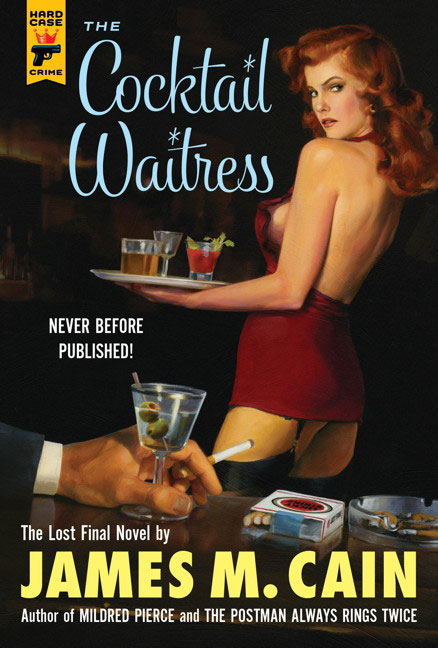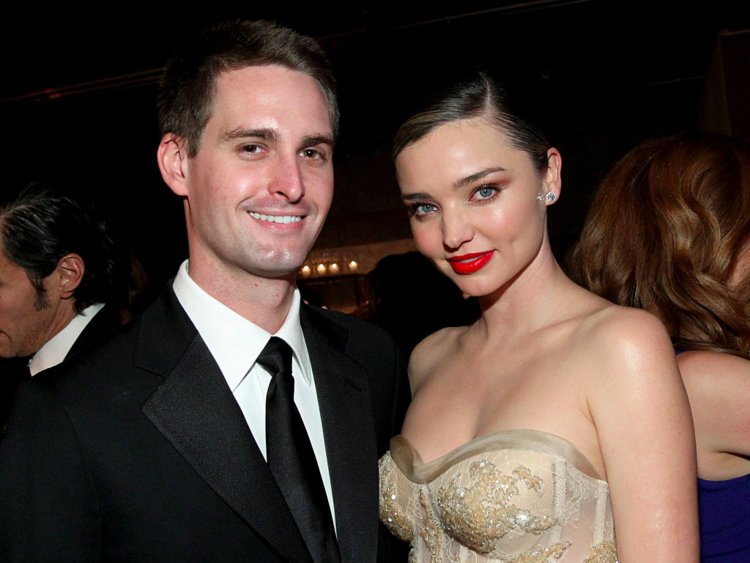
If you’ve heard the phrase “the postman always rings twice”, that’s because it’s the name of James M. Cain’s debut novel which was subsequently made into a movie. I wish someone would tell my postman to ring twice, because that work-shy public-sector cunt doesn’t hang around at all when an Amazon delivery needs signing for. He rings once, then I have to hurry out of the shower dripping wet or quickly crimp out the last turd and race to the door trying as best as I can to hold my arse cheeks apart so the fudge doesn’t spread before I can get back on the throne.
But I digress.
Cain is widely considered to be one of the three greats of hard-boiled detective fiction, the other two being Dashiel Hammett and Raymond Chandler, both of whom I’m read extensively. This is my first Cain book. Chandler didn’t like him at all, saying “He is every kind of writer I detest… a Proust in greasy overalls, a dirty little boy with a piece of chalk and a board fence and nobody looking.” You could say I was intrigued.

If new to the genre, try LA Confidential
Hard-boiled fiction dragged murder out of upper-class drawing rooms [1] and into the alleyway where it belongs. It’s characterised by tawdry motels, cheap tarts, alcoholic men, and every character has an angle to screw every other. I learned a lot about humanity from my sojourns into hard-boiled, because I’d always preferred a view of the world closer to Sir Nigel and his gallant knights. For any men who struggle to shed their naive view of the world, I recommend an immersion course in crime fiction. Pick any five Hard Case Crime novels and see how your mental map changes to incorporate the new worldview.
I spoke yesterday about how some writers present mundane everyday situations but fill them with nuance, deception, and sinister implication. It’s good training for a wannabe player, to practice tuning your mind into the hidden wavelengths of human interaction, like seeing the world through infrared googles or in x-ray. You see levels of scheming and manoeuvring otherwise invisible [2].

“IOIs!! I see them now!”
For example yesterday evening I had a Skype consultation with a daygame client. We were reviewing the status of his leads. He’d describe the set (sometimes with audio), send me screencaps of the messages, and describe the dates. We’d then try to figure out where he was at and how to proceed. Each time, a key stage in the analysis was this:
Put yourself into the girl’s position and try to understand her objectives and motivations.
It sounds obvious but many men have a personality that defaults to considering only their own actions, or of taking her actions at face value. If you are such a man, consider your homework assignment to read some hardboiled fiction. Get used to seeing angles. It comes naturally to rabbits, but not to wolves.
This preamble is particularly relevant to The Cocktail Waitress. It’s written from the first person perspective of a gold-digging slag who is recording her side of the story to clear her name after several murder accusations. Cain does a very convincing job of simulating the sophistry and self-delusion of a Machiavellian woman [3]
The principal device here is of the unreliable narrator. The reader is entirely dependent upon Joan Medford’s (the waitress) account as she introduces only those facts she wants us to see. Cain deftly hints by omission at those she tries to conceal. Medford wants us to believe she is buffeted by forces beyond her control and the victim of terrible luck. She is shocked – shocked I tell you – by the string of wild coincidences that seem so suspicious until you can just listen to her side of the story and how they aren’t anywhere near as bad as they first appear.
The story opens at the funeral of her husband. He was a heavy drinker and abuser – though we only have her word for that. She mentions her young boy Tad’s damaged shoulder but there are later hints that it might not have been her husband Ron who hit him. Joan and Ron had a shotgun marriage when she fell pregnant at 17 and was cut off by her well-to-do parents. One night he comes home steaming in his friend’s borrowed car and she throws him out. He drives into a culvert wall at 70mph and dies.
Unemployed, widowed and broke, Joan must temporarily entrust her three year old son with her sister-in-law Ethel, who hates her. Ethel is the main antagonist in the book, a jealous woman who’s recent hysterectomy has rendered her barren, so she is scheming to take Joan’s son for her own. But remember this is written by an unreliable narrator. Ethel doesn’t ever do anything bad, but rather Joan ascribes nefarious motives to her. It’s a whispering campaign. Joan is attempting to demonise Ethel to her readership, accusing her of the very scheming and whispering campaigns that she herself is engaging in.
It’s the classic Alinskyite tactic of the Left. Accuse others of what you yourself are doing [4]

Very much in love
One of the two cops assigned to Ron’s death is highly suspicious of Joan, thinking she may have laced his beer with the sedative Thalidomide. Joan’s narrative treats him as young and impulsive, rather vindictive, and writes that his older partner assures her he’s just hot-headed and there’s nothing suspicious. As a narrative device it’s common – disagreeing cops in a case – but in The Cocktail Waitress it has an extra layer of meaning: Joan is using an appeal to the older cop’s authority to discredit the judgement of the younger cop who is against her. It’s the unreliable narrator advice again. Remember, this book is written as if she’s justifying herself to the world (to avoid punishment).
She takes an emergency job at a cocktail bar where she wears a revealing costume and scores big tips. She assures us she really didn’t want such demeaning work but she simply had no choice: it was to secure her son’s future. Almost immediately she’s receiving the attentions of several men and again we are left as readers to wonder if this is an unfortunate coincidence to befall a bereaved widow who just wants to make an honest dollar, or if she’s actively harvesting dopey men and hiding that from us.
Two men fall hard. A young attractive hot-head and a battered old rich simp. The rest of the book has her make the familiar dual-mating strategy decisions: sex with the attractive guy, bilk the old guy out of his life savings. Being a crime story, she gets herself into all kinds of trouble and some people die.
The first crime doesn’t actually happen until halfway through the story and until then I felt like the book dragged. The book is clever, but it’s slower than I’d like. When it picks up in the second half you realise why it’s published by Hard Case Crime and not Harlequin. Still, I prefer my sex and violence to come thick and fast from the beginning, just like my real life.
Cain keeps turning the screw as he entices us to see through Joan Medford’s bullshit and begin treating all of her words as syrupy lies. The book becomes more interesting in trying to reason out what Joan is hiding from us, more than what she tells us. Because the book is, within the conceit of its narrative place, tied to facts. She’s writing for readers who’ve read the newspapers, read the trial reports, and some of whom work for the police in the district where the murders happened. She must persuade those readers, so she can’t tell any lie that can be disproved by a third party or the credibility of her elaborate self-justification would fall apart.
That forces her to admit unsavoury details, then scramble to explain them away. You get the feeling any conversation said one-to-one in private is recounted as a tissue of lies but things said publicly are truthfully reported (if spun to her favour). It really is very cleverly written.
Unfortunately the greatest strength of The Cocktail Waitress is also it’s undoing. It’s 254 pages of a silly tart justifying her own bad behaviour and spinning stories to manipulate you into white knighting her, or at least taking her side. Every player who has ever dated a silly tart knows how gruelling it is to endure such nonsensical self-serving prattle. At least on a date you know it’s over in a few hours and you might fuck her. This book took me three days to finish and there was no sex at the end of it.
If you want a fast-moving, gritty crime story then skip this. If you’d like to conduct a psychological experiment of putting yourself into the position of a dirty gold-digger and seeing how she’d manipulate her targets, give this a try. Next time you’re on Seeking Arrangement it might save your life.

She’s costing him $1m a month according to Hollywood gossip
If you’d like to dodge gold-diggers entirely and just bang birds who fancy you, consider Daygame Infinite. It is one of the “big three” of Game textbooks, alongside Daygame Mastery and something else that some magician in a furry hat wrote.
[1] That is to say, Agatha Christie locked room puzzles
[2] No, I’m not talking about the Jews. At least not today.
[3] Otherwise known as “a woman”.
[4] Russian collusion, sexual harassment, and using your political position to enrich yourself being three you might have heard the Democrats accuse Trump of. Oh, and yes, Alinsky was a Jew.


March 27, 2018 at 8:30 pm
“If you are such a man, consider your homework assignment to read some hardboiled fiction.”
I guess I will actually do so. Can you recommend anything in particular, maybe also from different genres?
I was literally just looking for books exactly for that purpose, glad I came across your post. I have just read Abercrombie’s The First Law and really enjoyed and learned a lot from his characters. [I like Hard Case Crime but you might want to start with Dashiel Hammett’s continental op stories and the Chandler novels. K.]